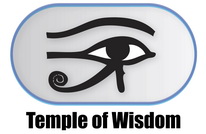
Construction chemicals are a vital part of modern-day construction processes. They are used to enhance the performance and durability of various construction materials, and also to improve the overall quality of the construction. There are various types of construction chemicals used in the construction industry, and each of them has its unique properties and uses. In this essay, we will discuss the common types of construction chemicals and their uses in the construction industry.
Admixtures
Admixtures are chemical substances added to concrete, cement, or mortar to modify their properties. They are usually added to improve the strength, workability, durability, and other properties of concrete. Admixtures can be classified into four types:
a. Water-reducing admixtures – These admixtures are added to concrete to reduce the amount of water required to obtain a given slump. They improve the workability and strength of concrete.
b. Retarding admixtures – These admixtures are used to delay the setting time of concrete. This is useful in situations where there is a long transportation time for the concrete or when the weather is hot and dry.
c. Accelerating admixtures – These admixtures are used to accelerate the setting time of concrete. They are used in cold weather to prevent the concrete from freezing.
d. Air-entraining admixtures – These admixtures are used to introduce tiny air bubbles into the concrete. This makes the concrete more workable and improves its durability.
Waterproofing agents
Waterproofing agents are chemical substances that are used to prevent the penetration of water into concrete or other building materials. These agents can be applied on the surface of the material or added to the material during the manufacturing process. Waterproofing agents can be classified into four types:
a. Surface waterproofing agents – These agents are applied on the surface of the material to form a protective barrier against water. They are commonly used on roofs, walls, and foundations.
b. Integral waterproofing agents – These agents are added to the material during the manufacturing process. They form a permanent barrier against water and are commonly used in concrete, cement, and mortar.
c. Crystalline waterproofing agents – These agents are used to seal cracks and joints in concrete or other building materials. They penetrate the material and form crystals that block the passage of water.
d. Cementitious waterproofing agents – These agents are used to create a waterproof layer on the surface of concrete. They are commonly used on concrete roofs, balconies, and other outdoor surfaces.
Surface treatments
Surface treatments are chemical substances that are applied on the surface of building materials to improve their appearance and durability. They are commonly used on concrete, wood, and metal surfaces. Surface treatments can be classified into three types:
a. Paints and coatings – These treatments are used to improve the appearance of building materials. They are available in a wide range of colors and finishes and can also provide protection against weathering and corrosion.
b. Sealers – These treatments are used to create a protective barrier on the surface of building materials. They are commonly used on concrete, wood, and masonry surfaces to prevent water penetration and staining.
c. Stains and dyes – These treatments are used to add color to building materials. They are commonly used on concrete surfaces to create a decorative effect.
Repair and restoration materials
Repair and restoration materials are used to repair and restore damaged or deteriorated building materials. These materials can be used to repair cracks, holes, and other forms of damage. They can be classified into three types:
a. Patching compounds – These materials are used to fill cracks and holes in building materials. They can be used on concrete, wood, and masonry surfaces.
b. Grouts – These materials are used to fill voids in building materials. They can be used on concrete, tile, and masonry surfaces.
c. Epoxy resins – These materials are used to repair cracks and other forms of damage in concrete and other building materials. They can also be used to create a strong bond between different materials.
Bonding agents
Bonding agents are used to create a strong bond between two different materials. They are commonly used in concrete repair and restoration, as well as in the installation of tiles and other building materials. Bonding agents can be classified into two types:
a. Epoxy-based bonding agents – These agents are used to create a strong bond between different materials. They are commonly used in concrete repair and restoration.
b. Latex-based bonding agents – These agents are used to improve the bond between concrete and other materials. They are commonly used in the installation of tiles, bricks, and other building materials.
Grouts
Grouts are used to fill voids in tile, stone, and masonry installations. They can be classified into three types:
a. Cementitious grouts – These grouts are made from cement, sand, and water. They are commonly used in tile and masonry installations.
b. Epoxy grouts – These grouts are made from epoxy resin and a hardener. They are commonly used in areas where high chemical resistance and low porosity are required.
c. Urethane grouts – These grouts are made from a combination of urethane resin and hardener. They are commonly used in areas where high flexibility and durability are required.
Floor hardeners
Floor hardeners are used to improve the durability and strength of concrete floors. They can be classified into two types:
a. Metallic floor hardeners – These hardeners are made from metal particles and are used to create a hard and durable surface on concrete floors.
b. Non-metallic floor hardeners – These hardeners are made from materials such as silica and are used to improve the durability and abrasion resistance of concrete floors.
In conclusion, construction chemicals play a crucial role in the modern construction industry. They are used to improve the performance, durability, and quality of various building materials. The common types of construction chemicals and their uses include admixtures, waterproofing agents, surface treatments, repair and restoration materials, bonding agents, grouts, and floor hardeners. It is essential to choose the right type of construction chemical for each application to ensure the success and longevity of the construction project.







